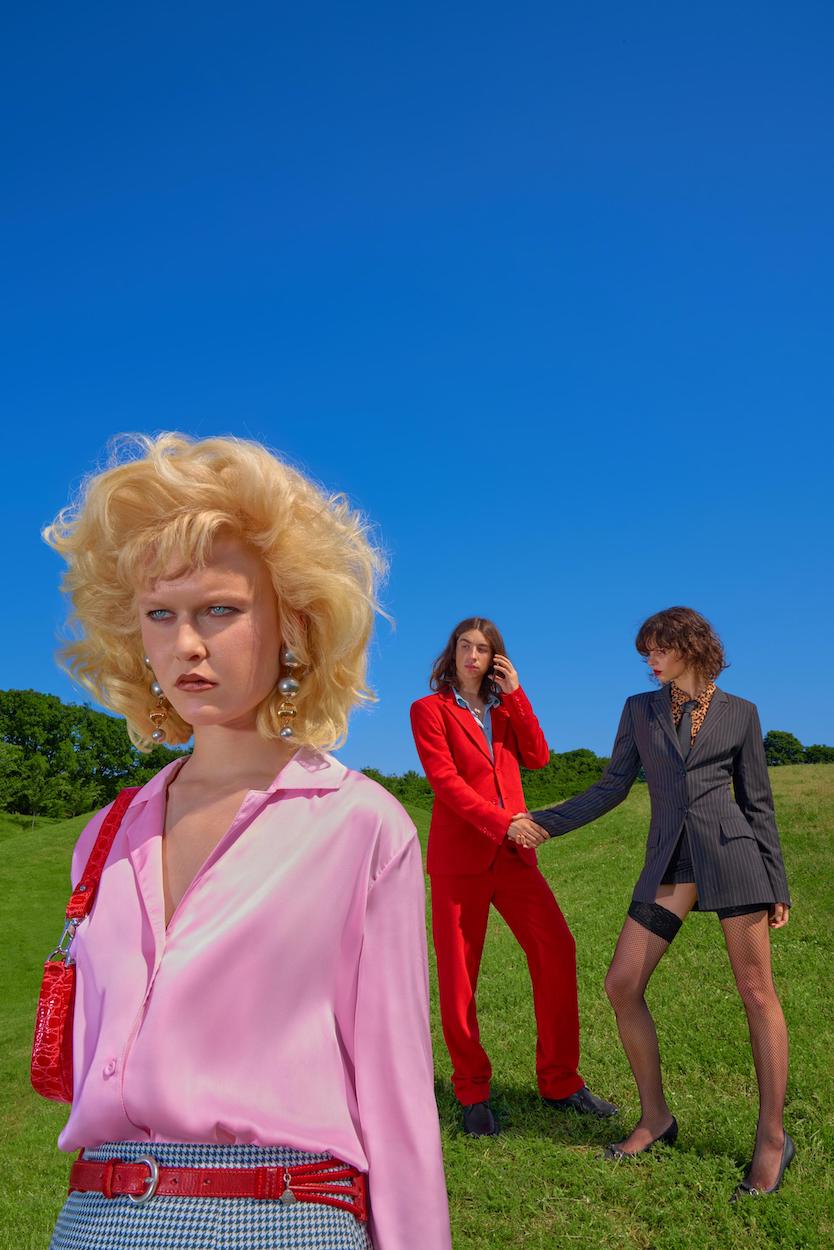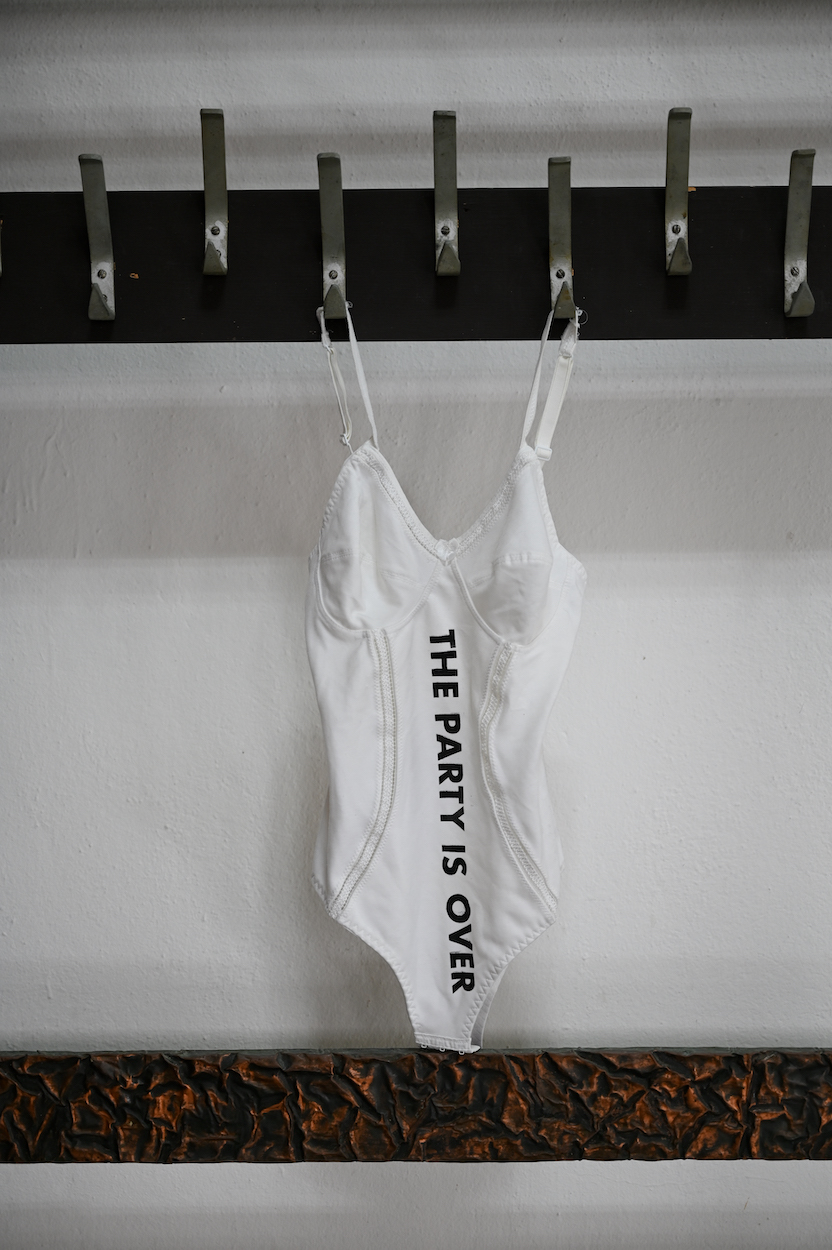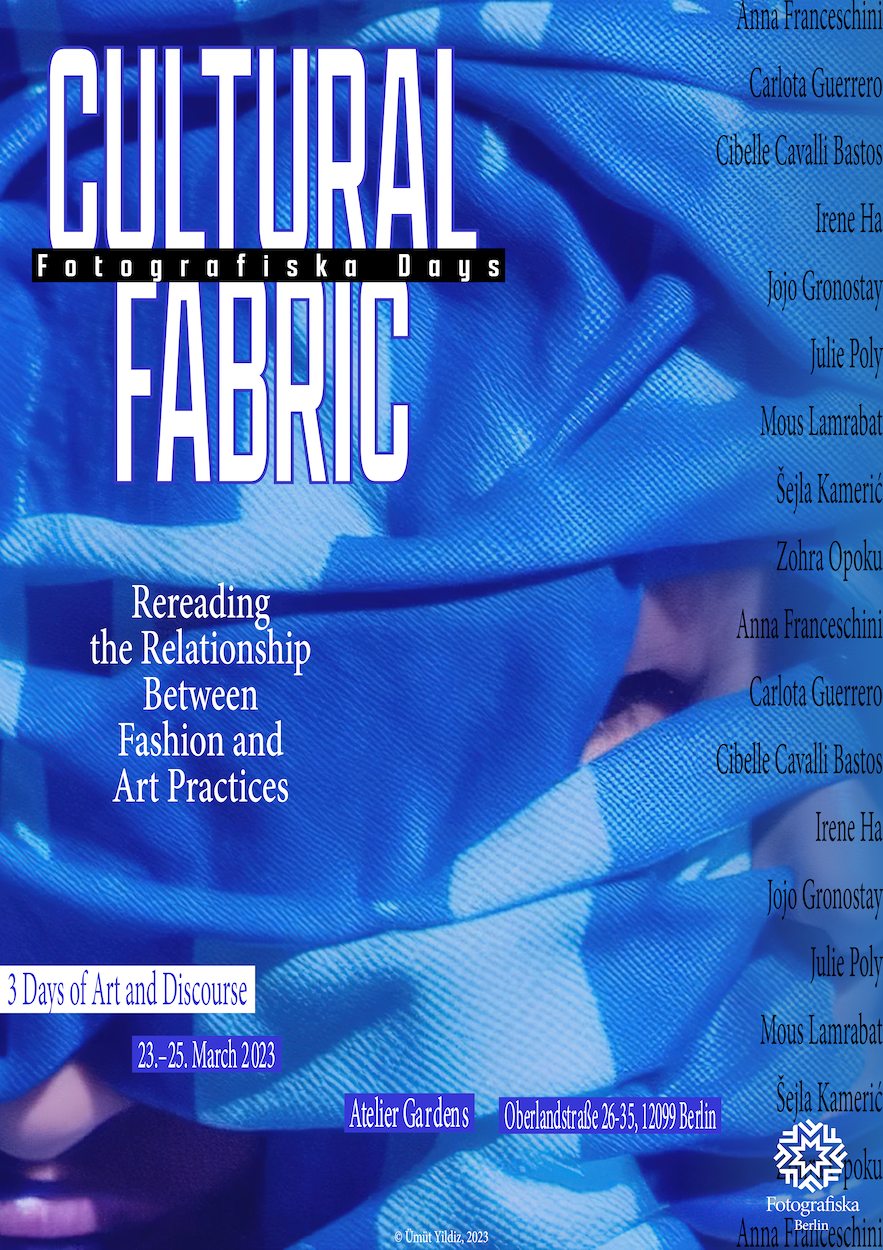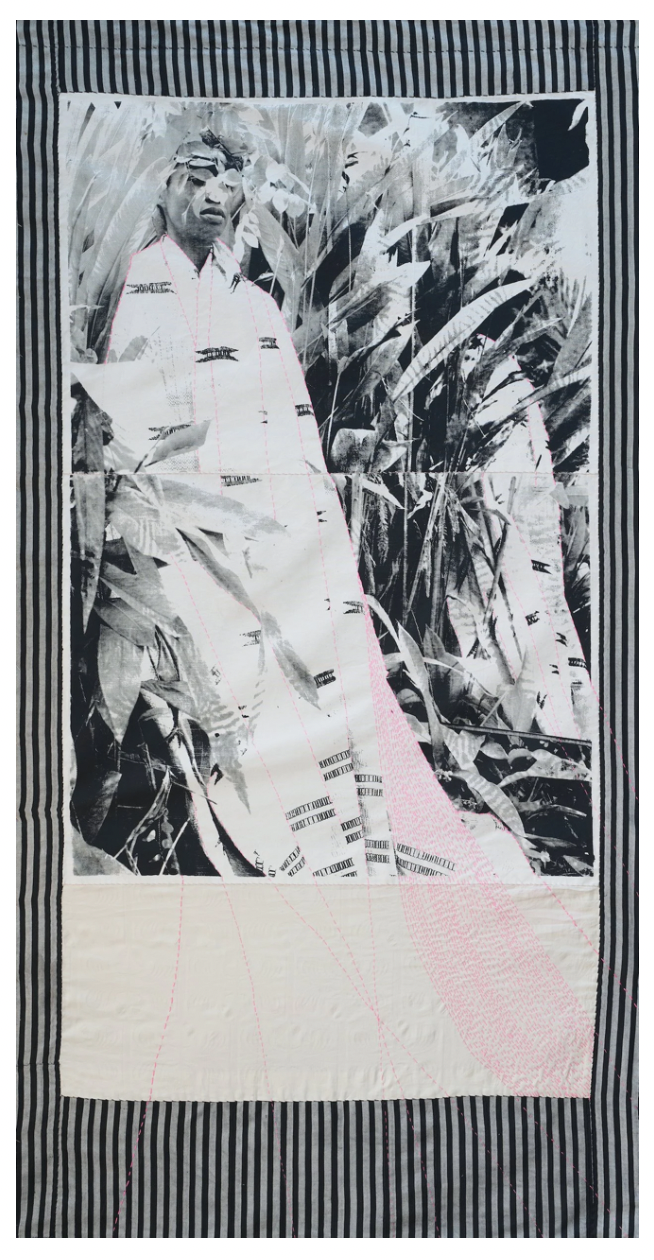
IN CONVERSATION WITH SOPHIE THATCHER
Sophie Thatcher, best known for her role in the critically acclaimed series…
Photography by Jason Renaud; Interview by Louise Garier




Fotografiska Berlin is a museum of experience.
Today Fotografiska Berlin, a museum for contemporary photography opened their doors in berlin’s Atelier Gardens for a three-day event series – the Fotografiska Days. Fotografiska aims to become an inclusive place where art can be experienced with all senses, detached from outdated notions. In this sense, the events, consisting of a group exhibition, panel discussions, portfolio reviews, film screenings and a party at the end of the event, are themed ‘Cultural Fabric- Rereading the Relationship Between Fashion and Art Practices‘ and highlight the connection points between fashion and art.
Numéro Berlin had a conversation with Marina Paulenka (Director of Exhibitions) and Yousef Hammoudah (Executive Director) from Fotografiska Berlin about photography, inclusivity and ‘Cultural Fabric’.
Yousef Fotografiska is not only a museum with a rich exhibition space, a store and a restaurant. We see ourselves as a home of contemporary culture. The same way, that photography is the common denominator that connects and displays all forms of artistic and cultural expression, be it fine arts, fashion, architecture, music, literature, design, theater, food or dance, the same way will Fotografiska be a physical home that incorporates all those aspects of contemporary culture under one roof.
Yousef Berlin is the creative capital of Europe and one of the world’s most important and meaningful hotspots for art and culture. With its many fairs, conferences & events, hundreds of galleries, museums, universities, not to mention the incredibly fast-growing community of innovators, start-ups, think-tanks, incubators, scientists, and researchers. With all its creative agencies, corporations and NGOs that chose to settle here over the last 25 years, its fair to say, that there is hardly a better place to open Fotografiska than here. Based on market data by the Berlin Institut für Kulturelle Teilhabeforschung, our addressable audience in Berlin alone is 1.5 Million people, regular museum & exhibition goers, people who identify with their cultural profile, who are interested in new perspectives to the world through arts. Not to mention all the tourists, who come to Berlin also because of its cultural offering. For all those people and probably most of you reading this here, Fotografiska will be an exciting new place to visit.
Marina At Fotografiska, I find it exciting that I have the opportunity to build a museum from the ground up with my team, to be part of the story of building a new cultural institution in a city that is anything but ordinary and already seen, to experiment with new formats, to work with an exceptionally talented team, and to collaborate with inspiring artists from all over the world, in an inclusive way. And, all this in Berlin, which offers so many possibilities and diversity of cultural content.
Yousef What Marina said – nothing to add.
“Urgency and relevancy are something that I think about when I look at photography.”
Marina For me, photographic work, like any other medium, is not about style nor aesthetics but rather about the narrative, the idea, the concept, the thought, and the story and intention behind it. Urgency and relevancy are something that I think about when I look at photography. That doesn’t mean that I am not impressed with someone’s brilliance in technique and visual language. One should justify and support the other.
Marina According to the above, but of course also according to the topic. I think it is very important to curate exhibitions that can communicate relevant topics with the audience, ask provocative questions, that encourage us to think critically and show different perspectives. I choose artists who are authentic and have something to say in a given time and habitat in relation to the social and political context in which we live.
Yousef “True consciousness” is a very subjective concept; it probably means something very different for everyone individually. To me, true consciousness means the willingness to accept the limitations of my personal worldview. We’re programmed by subconscious biases, that impact the way, we see the world. They shape our concepts of what we think is right or wrong. Making those subconscious biases conscious is the first step, to address some of the challenges of our times: For example, the increasing marginalization of certain groups in our societies, the lack of mindfulness in consumption leading to failure to stop the climate warming, the obsession with money, status and beauty in social networks leading to future generations growing up with severe mental health challenges. When we say, we want to inspire a more conscious world, we aim to challenge this subjectivity through the works of the artists we curate. We want to help ourselves and our audiences to discover our own biases and make them conscious, so we can better reflect on the choices we make in our lives.
Marina ‘Fotografiska Days’ is a discursive, weekend-long programme of events critically reflecting upon contemporary visual culture and its ever-evolving values. Positioned in the productive creative space at the intersection of the fields of fashion and art, Fotografiska Days brings together a group exhibition of artists who work between the two, accompanied by a series of interconnected panel discussions, portfolio reviews and film screenings designed to activate and enrich the critical dialogue around the themes of the show. We are interested to explore how artists are collaborating with fashion brands, what happens when digital fashion meets arts and much more. The invited roster of guests and speakers for Fotografiska Days: Cultural Fabric includes a diverse array of figures from the broad field of visual production, including photographers, artists, curators, fashion designers, theorists, critics and magazine editors.
Marina Our team wants to bring art closer to everyone. I am of the opinion that art educates, and expands awareness and our horizons. Therefore, we want to communicate with everyone and talk about art with a wide audience, regardless of background or previous knowledge, through our thoughtfully curated exhibitions, programs and other innovative content. We want to be self-critical and proactive about what the museum means today, we want to give voice to those who are invisible and unrepresented. In addition to the fact that we have been working with various groups, communities, and audiences in the city for a year, from cultural workers, artists, and educators, but also people from other branches, such as marketing, business, sports, fashion, music, culinary arts, etc., we will focus a lot of attention on education and mediation adapted to various age and other differentials. Our museum will operate until late in the evening, thus being accessible to everyone according to working hours. We believe that Fotografsika Days with its concept, approach, and program for a fairly wide audience, and as well as inclusiveness and desire for audience participation in the program will fully justify this goal.
Yousef After Stockholm, Tallin and New York, Fotografiska Berlin will be the fourth museum in our network. Opening our house in Berlin is a big milestone for us internationally. Fotografiska Berlin will have everything that our guests expect from a Fotografiska museum and so much more. We have great plans with our beautiful Berlin house and we look forward to sharing them with you, but right now, our focus lies on hosting a world class Fotografiska experience at the Fotografiska days and after that on a successful opening. Speaking of plans for the future: We are hiring (Fotografiska.workable.com) 😉
The Fotografiska Days will run from the 23.-25. of March
Find more Informations and the time table on https://www.fotografiska.com/berlin/de/

Sophie Thatcher, best known for her role in the critically acclaimed series…
Photography by Jason Renaud; Interview by Louise Garier

FOTOGRAFISKA X LML Adina Bier, the curator and innovative force behind the museum…
Photography by Sascha Rebrikov Interview by Louise Garier

"We have to create something that has a purpose and is useful. And not forced by the…
Interview Carolin Desiree Becker